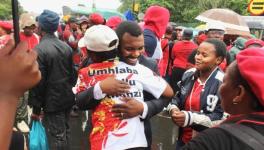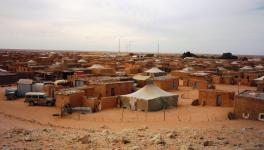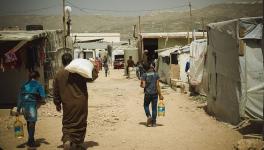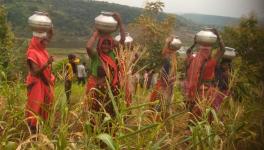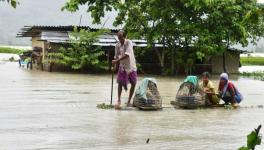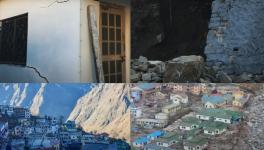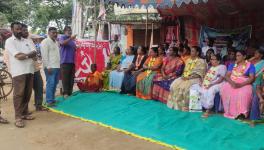Bru Refugees in Tripura Set To Starve Before Repatriation
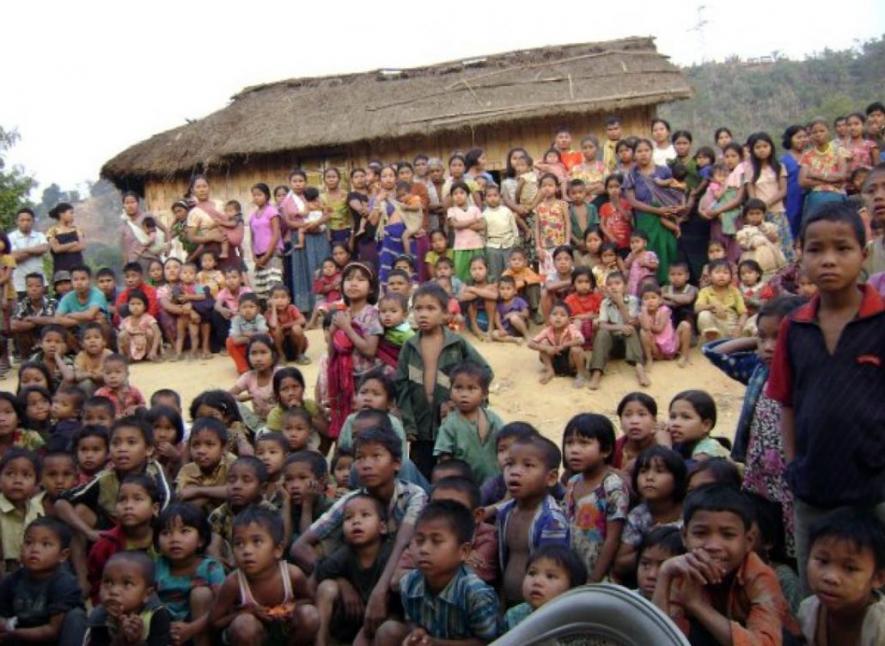
Bru refugees from Mizoram in a camp in Tripura. | Courtesy: nenow.in
Refugees belonging to the Bru ethnic group in Tripura are on the verge of starvation after the Ministry of Home Affairs (MHA) stopped all aid to them from October 1. This means that the refugees will no longer receive rations. The Bru or Reang are an ethnic group native to Mizoram and had fled the state following ethnic riots in 1997. The Bru refugees have been lodged in seven camps in Tripura ever since then.
On July 3 this year, a repatriation agreement was arrived at between the Mizoram Bru Refugees Displaced Forum (MBRDF), the Government of India, and the governments of Mizoram and Tripura. The time period earmarked for repatriation was from August 25 to September 25, the camps would then be shut down on October 1. However, three days later, a section of the refugees forced the MBRDF to withdraw from the agreement. The reason was because the repatriation agreement would not fulfil their demands for regional autonomy within Mizoram. The result is that out of 5,407 refugee families, only 40 have been repatriated.
Also read : Bru Refugees: Another Repatriation Failure?
Why did they flee?
The troubles began in 1995 when the Young Mizo Association (Mizo Zirlai Pawl - [MZP]) demanded that Bru names be struck off from the voter rolls. This led to heightened tensions between the dominant Mizo community and the minority Brus. In 1997, the Bru National Union demanded that they be granted an Autonomous District Council (ADC) along the lines of Chakma ADC. These demands went unheeded and soon an armed movement began. Then in 1997, Lalzawmliana, a forest guard, was killed by the Bru National Liberation Front (BNLF), which sparked the riots leading to the Bru fleeing Mizoram for safety in Tripura.
Tripura also has a Bru population who prefer to call themselves Reang, as well as Lushai – who in Mizoram are the dominant Mizo group. Some of the Bru refugees who entered Tripura began to attack the Lushai living there, this led to another smaller exodus of Lushais to Mizoram.
The repatriation process began first with dismantling the nascent Bru armed movement. Dialogue between the government of Mizoram and the BNLF began in 2001. In 2005, the BNLF agreed to lay down its arms and enable the refugees to be repatriated. However, the process was stalled in 2009, after a Mizo youth was killed allegedly by Bru armed groups. This led to another round of blood-letting and a second exodus of Brus to Tripura.
Also read: Hindutva's Double Game in the Northeast
Problems with the Repatriation Agreement
Since the failed repatriation in 2009, the BNLF has faded and the MBDRF has emerged as the primary group voicing the concerns of the refugees. However, the issue still revolves around regional autonomy for the Bru people within Mizoram. Another issue with the agreement is that it will only enable those Brus, whose names appear in the 1995 voter rolls, to be repatriated. The Bru refugees allege that the after the MZP’s call for the community to be removed from the voter rolls, many of their names were deleted. However, Mizo civil society groups have urged the state government to adhere strictly to the agreement.
Another allegation that has surfaced is that since the repatriation money is supposed to be deposited in individual bank accounts and linked to Aadhaar, the one month window for return was too short to complete all the formalities. Even those refugees who were willing to return, had not opened bank accounts or received their Aadhaar. Further, the Election Commission of India has announced that the Mizoram assembly elections will commence from December 16 this year. Hence, the problem from Mizoram’s side is that officials would be busy with the elections.
Considering all of these issues with the agreement, the process and the elections, the MHA’s decision to stop aid to the Bru refugees in Tripura seems premature, if not malicious.
Get the latest reports & analysis with people's perspective on Protests, movements & deep analytical videos, discussions of the current affairs in your Telegram app. Subscribe to NewsClick's Telegram channel & get Real-Time updates on stories, as they get published on our website.










